
Roberta Joan "Joni" Mitchell is a Canadian-American singer-songwriter, multi-instrumentalist and painter. As one of the most influential singer-songwriters to emerge from the 1960s folk music circuit, Mitchell became known for her starkly personal lyrics and unconventional compositions which grew to incorporate pop and jazz elements. She has received many accolades, including ten Grammy Awards and induction into the Rock and Roll Hall of Fame in 1997. Rolling Stone called her "one of the greatest songwriters ever", and AllMusic has stated, "When the dust settles, Joni Mitchell may stand as the most important and influential female recording artist of the late 20th century".

Ladies of the Canyon is the third studio album by Canadian singer-songwriter Joni Mitchell, released on Reprise Records in 1970. It peaked at No. 27 on the Billboard 200, and has been certified platinum by the RIAA. The title makes reference to Laurel Canyon, a center of popular music culture in Los Angeles during the 1960s, where Mitchell lived while she was writing the album. Specifically, Mitchell lived and wrote at 8217 Lookout Mountain Avenue, the house which is the subject of Graham Nash's "Our House". The album includes several of Mitchell's most noted songs, such as "Big Yellow Taxi", "Woodstock" and "The Circle Game".
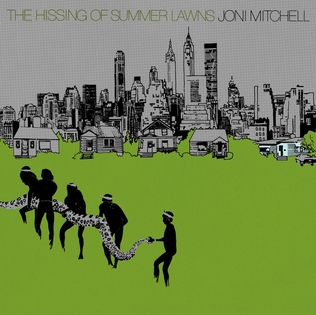
The Hissing of Summer Lawns is the seventh studio album by Joni Mitchell. It was released in November 1975 on Asylum Records. The album continues the jazz-influenced sound of Mitchell's previous album Court and Spark while featuring more unconventional and experimental material than its predecessor. Additionally, the album saw Mitchell experiment with sampling and synthesizers such as the Moog and ARP. Contributors to the album include jazz-rock groups the L.A. Express and the Jazz Crusaders alongside backing appearances by James Taylor, David Crosby, and Graham Nash.
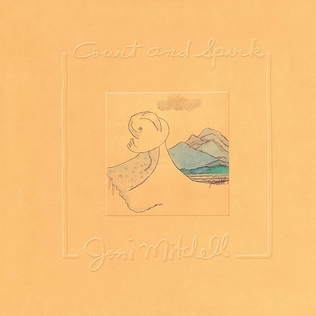
Court and Spark is the sixth studio album by Canadian singer-songwriter Joni Mitchell. Released in January 1974, it infuses the folk rock style of her previous albums with jazz elements.
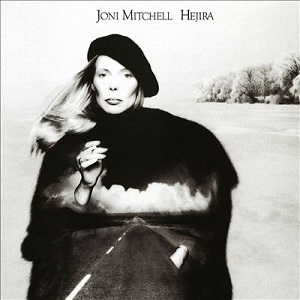
Hejira is the eighth studio album by Canadian singer-songwriter Joni Mitchell, released in 1976 on Asylum Records. Its material was written during a period of frequent travel in late 1975 and early 1976, and reflects Mitchell's experiences during that time. Characterized by lyrically dense, sprawling songs, as well as the overdubbed fretless bass playing of Jaco Pastorius, Hejira continued the musician's journey towards a freer, jazz-inspired sound.
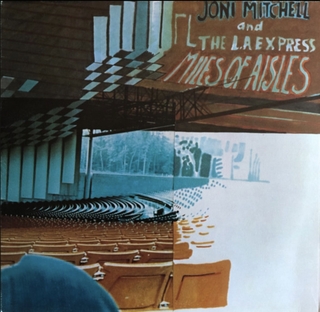
Miles of Aisles is the first live album by Canadian singer-songwriter Joni Mitchell, released in 1974 on Asylum Records. It is a double album documenting her concerts in support of the Court and Spark album with her backing band for the tour, the L.A. Express. It reached No. 2 on the Billboard 200 and became one of her biggest-selling records, certified a gold record by the RIAA.

Clouds is the second album by Canadian singer-songwriter Joni Mitchell, released on May 1, 1969, by Reprise Records. After releasing her debut album, Song to a Seagull (1968), to considerable exposure, Mitchell recorded Clouds at A&M Studios in Hollywood. She produced most of the album and painted a self-portrait for its cover artwork. Clouds has subtle, unconventional harmonies and songs about lovers, among other themes.

Wild Things Run Fast is the 11th studio album by Canadian singer-songwriter Joni Mitchell. Her first of four releases for Geffen Records, it was released in 1982 and represents her departure from jazz to a more 1980s pop sound. This was her first album to work with bassist Larry Klein, whom she married in 1982. Klein would play bass on and co-produce her next four albums.
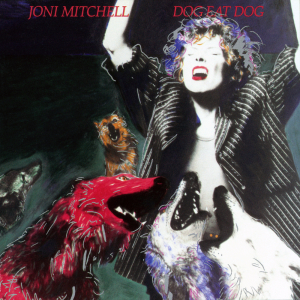
Dog Eat Dog is the 12th studio album by the Canadian singer-songwriter Joni Mitchell, released in 1985. It was her second album for Geffen Records.

Chalk Mark in a Rain Storm is the 13th studio album by Canadian singer-songwriter Joni Mitchell, released on March 23, 1988, by Geffen Records. Her third release on the label, the album features duets with a number of artists such as Peter Gabriel on "My Secret Place," Willie Nelson on "Cool Water," Don Henley on "Snakes and Ladders," and Billy Idol and Tom Petty on the track "Dancin' Clown." Henley also performs backing vocals on "Lakota," and Wendy and Lisa perform backing vocals on "The Tea Leaf Prophecy ."
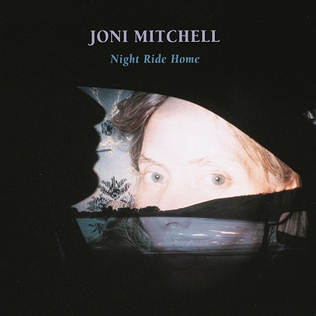
Night Ride Home is the 14th album by Canadian singer-songwriter Joni Mitchell, released in 1991. It was the last of four albums she recorded for Geffen Records.
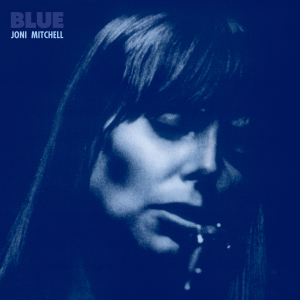
Blue is the fourth studio album by Canadian singer-songwriter Joni Mitchell, released on June 22, 1971, by Reprise Records. Written and produced entirely by Mitchell, it was recorded in 1971 at A&M Studios in Hollywood, California. Created just after her breakup with Graham Nash and during an intense relationship with James Taylor, Blue explores various facets of relationships from love on "A Case of You" to insecurity on "This Flight Tonight". The songs feature simple accompaniments on piano, guitar and Appalachian dulcimer. The album peaked at number 3 on the UK Albums Chart, number 9 on the Canadian RPM Albums Chart and number 15 on the Billboard 200.

Turbulent Indigo is the 15th album by Canadian singer-songwriter Joni Mitchell. Released in 1994, it won a Grammy Award for Best Pop Album. John Milward, writing for Rolling Stone, wrote that it was Mitchell's "best album since the mid-'70s".

Taming the Tiger is the sixteenth studio album by the Canadian musician Joni Mitchell. Released on September 29, 1998, through Reprise Records, it is the follow-up to the successful Turbulent Indigo (1994). The album was, at the time, widely believed to be her last of completely original material; this would be disproved with the release of Shine in 2007.
"Both Sides, Now" is a song by Canadian singer-songwriter Joni Mitchell. First recorded by Judy Collins, it appeared on the US singles chart during the fall of 1968. The next year it was included on Mitchell's album Clouds, and became one of her best-known songs. It has since been recorded by dozens of artists, including Dion in 1968, Clannad with Paul Young in 1991, and Mitchell herself who re-recorded the song with an orchestral arrangement on her 2000 album Both Sides Now.

Dreamland is a compilation album by Canadian singer-songwriter Joni Mitchell, released in 2004 by Rhino. The songs for the album were selected by the singer herself. The booklet contains an essay by Cameron Crowe on Mitchell's career and several paintings by Joni Mitchell. As of December 2007, the album has sold 78,000 copies in the US.
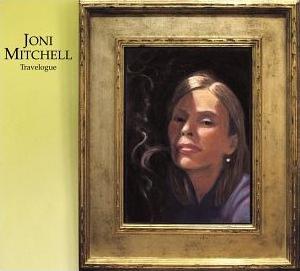
Travelogue is a 2002 double album by Canadian singer-songwriter Joni Mitchell featuring orchestral re-recordings of songs from throughout her career. It is her 18th studio album and is the follow-up to 2000's Both Sides Now which had a similar format. Upon release Mitchell announced that it would be her last album, but later recorded one further studio album, Shine.

Shine is the 19th and final studio album by Canadian singer-songwriter Joni Mitchell, released on September 25, 2007, by Hear Music. It is Mitchell's first album of new material since Taming the Tiger (1998).

Larry Klein is an American musician, songwriter, and record producer. He is based in Los Angeles.

Misses is a 1996 compilation album by Canadian singer-songwriter Joni Mitchell. The selections, chosen by Mitchell herself, concentrate on her lesser known, more experimental work, including jazz influenced recordings from the late 1970s and electronic music from the 1980s. Mitchell also designed the album cover. The album is a companion to Hits, issued on the same day. Mitchell agreed to a request from her record company to release a greatest hits album on the condition that she also be allowed to release Misses.



















